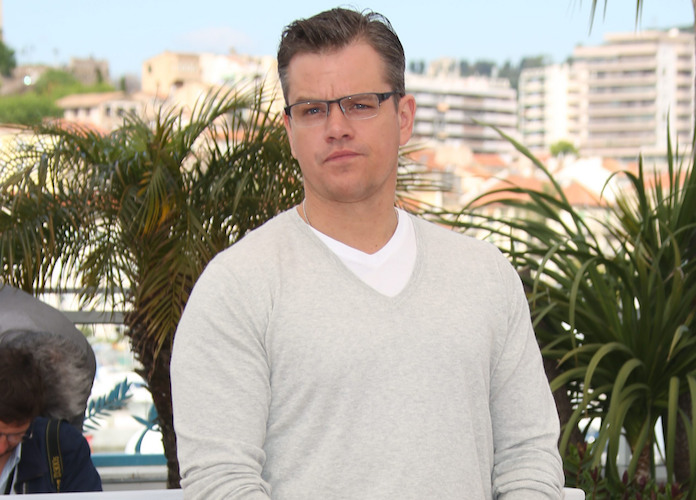Matt Damon Delivers Powerful Commencement Address At MIT, Reads From School’s Review Of ‘Good Will Hunting’
Matt Damon delivered the commencement address to the Class of 2016 at MIT Friday morning, returning to the campus where he filmed Good Will Hunting.
Matt Damon’s MIT Commencement Address
After self-deprecatingly noting the prestigious titles held my MIT commencement speakers who came before him, Damon unearthed a review of Good Will Hunting that was penned by a MIT student who been less than impressed with the film.
“’Good Will Hunting is very entertaining; but then again, any movie partially set at MIT has to be.’ There’s more. ‘In the end…,’ the reviewer writes, ‘the actual character development flies out the window. Will and Sean talk, bond, solve each other’s problems, and then cry and hug each other. After said crying and hugging, the movie ends… Such feel-good pretentiousness is definitely not my mug of eggnog.'”
“Well, this kind of hurts my feelings. But don’t worry: I now know better than to cry at MIT,” Damon quipped.
Damon went on to appeal to the scientific minds of the 3,000-deep graduation class at MIT by talking about Simulation Theory. He provided an anecdote about watching a discussion moderated by the Hayden Planetarium’s Neil deGrasse Tyson in which a panel could not discount the idea that Earth’s population could be living in a simulation run by a more intelligent civilization, not unlike the Sims video games.
“Tyson himself put the odds at 50-50. I’m not sure how scientific that is, but it had numbers in it, so I was impressed. Well, it got me to thinking: What if this—all of this—is a simulation? I mean, it’s a crazy idea, but what if it is?” asked Damon. “And if there are multiple simulations, how come we’re in the one where Donald Trump becomes the Republican nominee? Can we, like, transfer to a different one?
Damn added, “Professor [Max] Tegmark has an excellent take on all this. ‘My advice,’ he said recently, ‘is to go out and do really interesting things… so the simulators don’t shut you down.’ But then again: what if it isn’t a simulation? Well, either way, my answer is the same. Either way, what we do matters. What we do affects the outcome.
Continuing his call to action, Damon said, “So either way, MIT, you’ve got to go out and do really interesting things. Important things. Inventive things. Because this world … real or imagined … this world has some problems we need you to drop everything and solve. Go ahead: take your pick from the world’s worst buffet.”
For a number of years now, Damon has been involved in clean water initiatives, even founding water.org. He talked to the assembled graduates about how he became involved in the cause, as well as the wise words once spoken to him by former president Bill Clinton: “Turn toward the problems you see.” Damon’s biggest advice was to engage in what one finds in his or her blind spots, and to solve the problems discovered there.
“The point is to try to eliminate your blind spots — the things that keep us from grasping the bigger picture. And look, even though I grew up in this neighborhood — in this incredible, multicultural neighborhood that was a little rough at that time — I find myself here before you as an American, white, male movie star,” Damon said. “I don’t have a clue where my blind spots begin and end.”
“But looking at the world as it is, and engaging with it, is the first step toward finding our blind spots,” Damon added. “And that’s when we can really start to understand ourselves better … and begin to solve some problems.”
RELATED ARTICLES
Get the most-revealing celebrity conversations with the uInterview podcast!




 by
by  Click here for the Cannes Film Festival 2016 Best Dressed Photos Slideshow
Click here for the Cannes Film Festival 2016 Best Dressed Photos Slideshow



Leave a comment